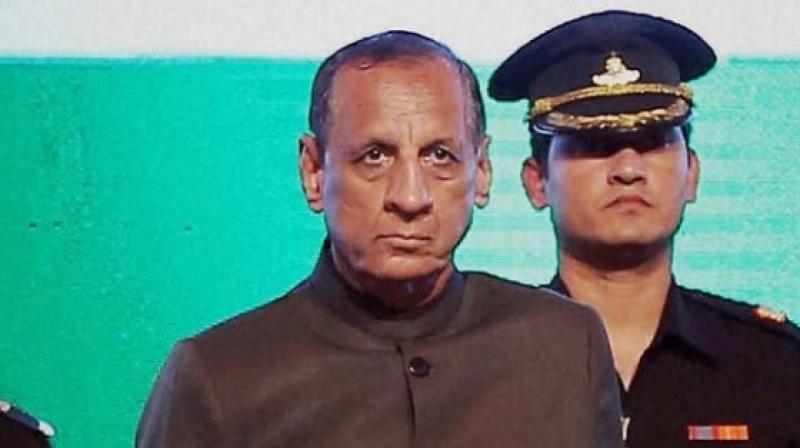Andhra Pradesh: Focus on Governor after swearing in defectors

Kurnool: Governor E.S.L. Narasimhan is in the eye of political storm once again on the issue of disqualification of YSRC legislators who defected to the Telugu Desam — four of them were inducted into the Naidu cabinet last week.
The reticence of the resident of Raj Bhavan has peeved AP Leader of Opposition Y.S. Jagan Mohan Reddy so much that he has raised the matter with President Pranab Mukherjee on Thursday.
The swearing-in of four of the most vocal legislators as ministers in Chief Minister N. Chandrababu Naidu’s Cabinet — C. Adinarayana Reddy (Jammalamadugu), Bhuma Akhila Priya (Allagadda), N. Amarnath Reddy (Palamaner) and Sujaya Krishna Ranga Rao (Bobbili) — remains a contentious issue for the YSRC.
But the question is whether the Governor has a role in deciding on the appropriateness of an MLA defecting from one party to another.
Mr Jagan Mohan Reddy gave a memorandum to the President detailing the sequence of events that led to the swearing-in of the defected legislators. He brought up the inaction of the Governor in advising the Chief Minister and his council of ministers in taking politically and practically correct decisions that are acceptable in a democratic set-up. But his contention was negated by member of AP Bar Council and BJP MLC Rama Chander Rao.
He said the Governor has a limited role because Supreme Court judgements clearly say that defection has to be dealt with by the Speaker of the House.
He said paragraph 2(1)(a) of the Tenth Schedule states the Speaker functions in a quasi-judicial capacity, which makes an order passed by him in such capacity beyond judicial review.
YSRC district president Gowru Venkat Reddy dared the Governor to act on the resignations purported to have been given to him by the YSRC legislators before taking oath.
He said the Governor, being the head of state, should have advised the Chief Minister about the illegality of such a move. Had he insisted on the principles of sound democracy, such a situation would not have arisen in Andhra Pradesh, he added.
Kurnool Bar Association’s former president Nagendranath said the Governor should not have administered the oath of office to the defector MLAs. He found fault in the style of working at Raj Bhavan and said discharging of constitutional obligations should have been of paramount importance.
Speaker has powers on disqualification
- The 10th Schedule, or the anti-defection law, was inserted in 1985. The legislation contains eight paragraphs, including details about who would decide disputes and limiting jurisdiction of courts in the matter of disqualification of a member, and the power of the Chair to make rules for a House to give effect to the law.
- The law says a member can be disqualified if he or she gives up membership of a party or votes (or abstains) contrary to the directives issued by the party.
- The law says the Chair's decision on disqualification on ground of defection shall be final. It says no court shall have any jurisdiction in respect of any matter connected with the disqualification.

